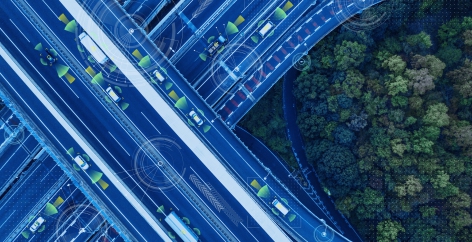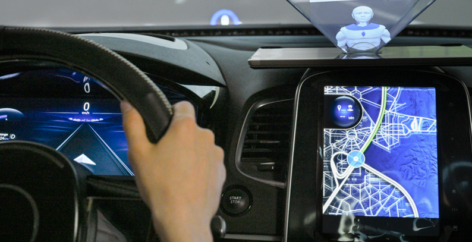Industry of the future certificate
Next sessions:
On demand
Overview
Recent advances in automation, artificial intelligence, and the Internet of Things are profoundly transforming industrial and logistics systems. The digitalization of production processes opens up new opportunities: optimized resource usage, improved forecasting capabilities, and enhanced coordination across supply chains. However, these transformations also bring major technical, organizational, and human challenges.
Objectives
- Understand the organizational, technical, and managerial challenges of digitalization and automation in industrial and logistics systems
- Master the key concepts, tools, and methods required to design and manage production systems in the context of Industry 4.0
- Gain first-hand insights into real-world industrial transformations, particularly in terms of business model evolution
Program
1. Introduction to Industry 4.0
- Key challenges and opportunities
- Operational excellence
2. Socio-organizational Transformations
- Historical perspective
- Impacts on organizations
- Maturity models
- Role of socio-economic stakeholders
3. Designing and Implementing a 4.0 Strategy
- Transformation strategy design
- Implementation tools
- Theoretical frameworks
4. Data Management and Big Data
- Structuring, analyzing, and governing data in industry
5. Robotics and Cobotics
- Integration of collaborative robots into industrial processes
6. Data Science and Artificial Intelligence for Industry
- Data and knowledge management
- Machine learning, deep learning, NLP, computer vision
- Real-world use cases
7. Introduction to Systems Engineering
- Requirements engineering and modeling
- MBSE and associated tools
- Industrial applications (e.g., manufacturing, oil & gas)
8. Functional Safety and Predictive Maintenance
- Risk and safety assessment
- Model-Based Safety Analysis (MBSA)
- Industrial case studies
9. Systems Engineering and the Extended Enterprise
- Complex systems
- Governance, interoperability, collaborative engineering
10. Cybersecurity and Industry 4.0
- ICS technologies, components, protocols
- Attack typologies
- Best practices and cyber-resilience
11. Emerging Manufacturing Technologies and Scientific Computing
- Additive manufacturing
- Scientific computing applied to engineering
Teaching methods
- Duration: 10 days, spread over 2 to 3 days per month (typically Monday–Wednesday)
- Active learning approach: A mix of theoretical lessons, experience sharing, industrial case studies, and collaborative workshops
- Hands-on insights: On-site observation of Industry 4.0 practices
Interdisciplinary methodology: Integration of technical, organizational, and managerial skills
Target Audience & Prerequisites
Target audience:
Professionals involved in or wishing to contribute to the digital transformation of industrial production systems, including:
- Industrial or logistics project managers
- Plant or industrial operations directors
- Supply chain directors and managers
- Consultants and experts seeking to upskill in Industry of the Future
Prerequisites:
Professional experience in industry, logistics, or industrial project management. A foundation in industrial systems or digitalization is a plus.
Organized by
IRT SystemX
Key Strengths of the Training
This program helps professionals understand and master the transformations driven by Industry 4.0 by combining technical, managerial, and strategic expertise in a hands-on, multidisciplinary setting.


